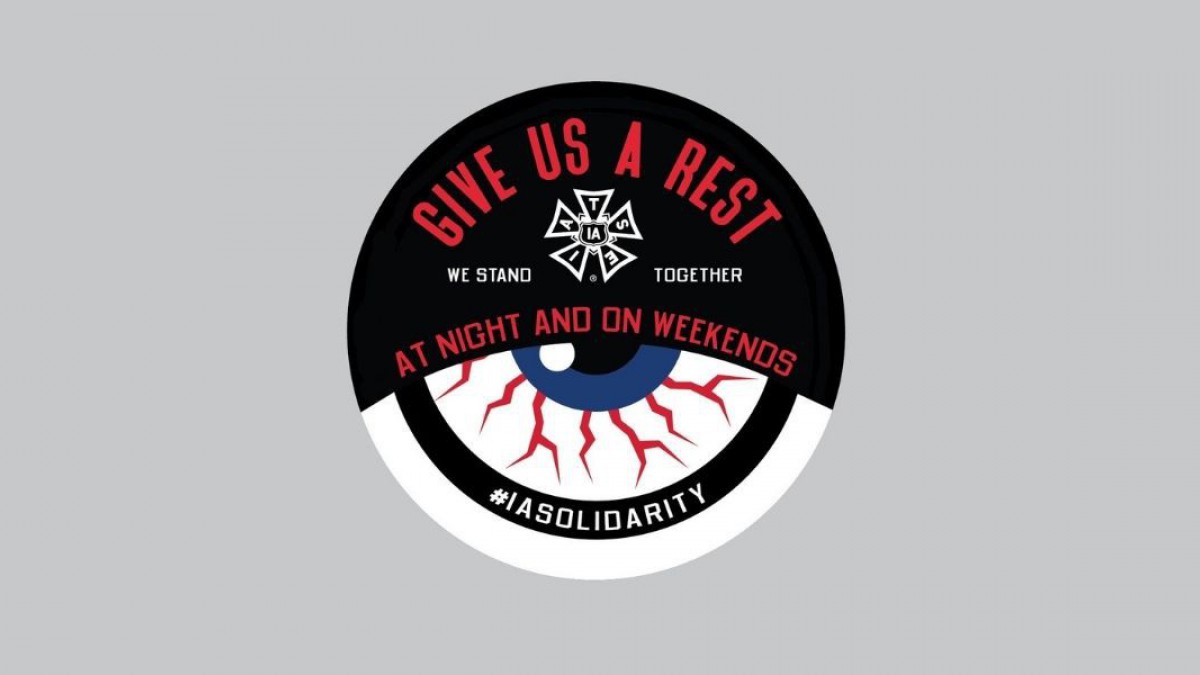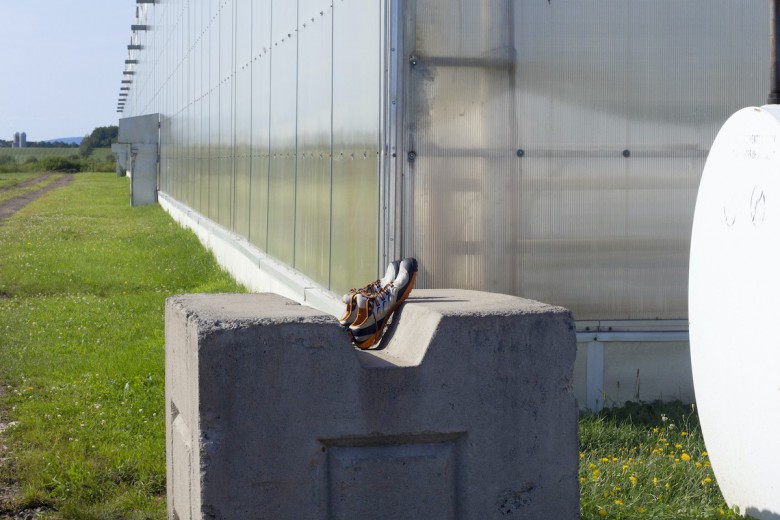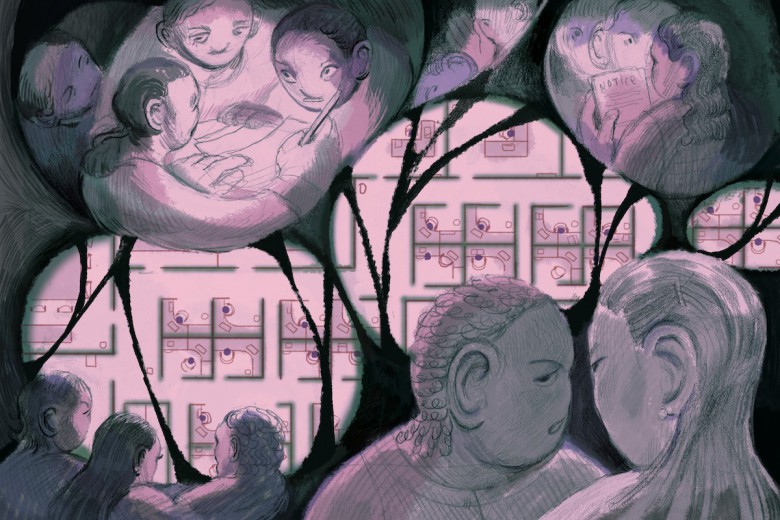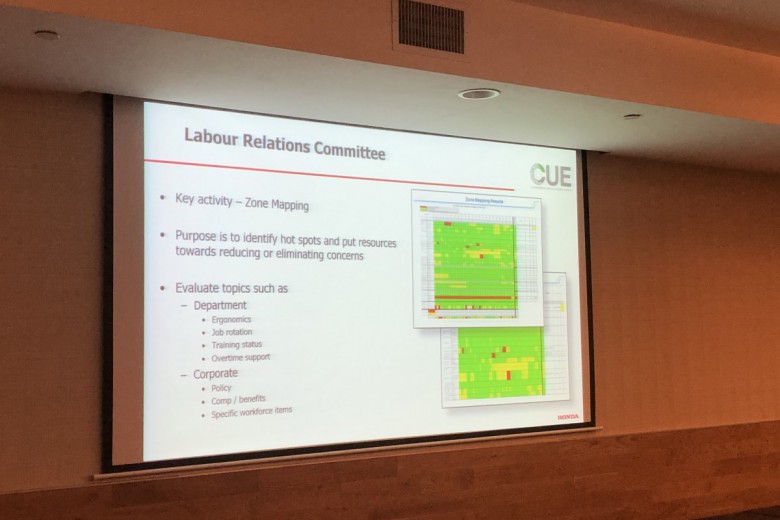“To not rest is really being violent towards your body, to align yourself with a system that says your body doesn’t belong to you, keep working, you are simply a tool for our production.”
—Tricia Hersey
The right to rest has long been recognized by labour organizers. Previous generations of workers and organizers fought for an eight-hour workday, paid vacations, and weekends – even parks are in large part thanks to the efforts of workers dreaming of more rest.
Today, the fight for the right to rest remains of utmost importance in the labour movement. Last month 60,000 IATSE workers in U.S. TV and film production voted nearly unanimously for a nationwide strike, fed up with 18-hour workdays and being denied bathroom breaks. More workers are labouring in precarious jobs and in the gig economy – working volatile hours and earning just 71 per cent as much per hour as those with full-time jobs. This is not new – women and people of colour have faced precarious work for decades and are still much more likely to work these types of jobs. There has been much attention paid toward precarious labour’s impacts on how we work, but less paid to its impacts on how we rest. When we are working multiple jobs with erratic hours and low pay, while trying to balance domestic and paid labour, our ability to find rest is greatly diminished.
Though we as labour organizers continue to fight for workers’ right to rest, I worry we may have forgotten to recognize our own right to rest. It is not only employers who are working us to death – capitalist productivity mentalities are often recreated in our social justice movements, driving expectations of the “tireless advocate” toiling well beyond the 40-hour work week. Organizers are some of the hardest-working people I know – and they are tired. Not only is this unsustainable, it is not the kind of practice that builds liberated futures. We cannot assume time for rest will be granted by employers or governments or even comrades in organizing – we must live it as our inherent right.
I remember, two years ago, having a conversation with Leanne Betasamosake Simpson (Michi Saagiig Nishnaabeg) about work that is your heartfire – the work that keeps you moving and alive in systems that are intentionally meant to harm us.
At this moment in time, work is non-negotiable for most of us: there are bills to be paid and important jobs to be done. But we are more than our work. There are cracks in capitalism, and they are widening all the time, as the labour movement pushes for better working conditions, and for reducing work hours without reducing pay. We can help widen those fissures, both through our organizing and through our own lives.
“Nap bishop” Tricia Hersey, founder of the Nap Ministry, sees rest as a radical act of resistance and decolonization – particularly for Black people, whose labour has been and continues to be intensely and violently exploited by white supremacy. She asks us to consider the historical and contemporary ways Black people have been robbed of their right to rest, as well as how we can move toward resting practices that make us useless to capitalism. Her goal is a massive culture shift that decouples our worth from our productivity.
As a woman of Jewish and Mi’kmaw ancestry with experiences rooted in poverty, I am constantly working myself to exhaustion before allowing myself rest. I will often use rest as an incentive to keep working: If I just work 10 or 12 hours a day for the next four days, then I can get a good night’s sleep. I know that I am not alone in this – most organizers I talk to, whether their work is in labour rights or Indigenous sovereignty, are in the process of recognizing and unlearning the insidious and toxic grind culture we have inherited from capitalism and white supremacy.
As Hersey notes, this is not the individualistic self-care sold to us by the wellness industry – “it’s a space of deep imagination, deep generative freedom for us.”
We must use as many tools as possible to fight against oppression, including – or maybe especially – rest. The journey toward rest and liberated futures is a deeply personal one. I remember, two years ago, having a conversation with Leanne Betasamosake Simpson (Michi Saagiig Nishnaabeg) about work that is your heartfire – the work that keeps you moving and alive in systems that are intentionally meant to harm us. For me, heartfire work cannot be work that strengthens capitalist logics or betrays my own right to rest. I need time away from the push and pull of social media. I need slow relationships built on trust. I need to be with non-human relations – the trees, water, and wind that exist outside of our human concepts of time. I need time with my body. I need time to move out of triage responses to imagine and dream. As Hersey notes, this is not the individualistic self-care sold to us by the wellness industry – “it’s a space of deep imagination, deep generative freedom for us.”
Ultimately, we as organizers, as workers, as people cannot continue to act only from a place of reaction to the oppressive systems we live under while expecting liberated futures. We must rest to wake up and out of capitalism and colonization. An integral tool of labour and other movements for social justice is disruption. In systems of oppression that benefit from our labour, rest may be one of our greatest disruptions.






